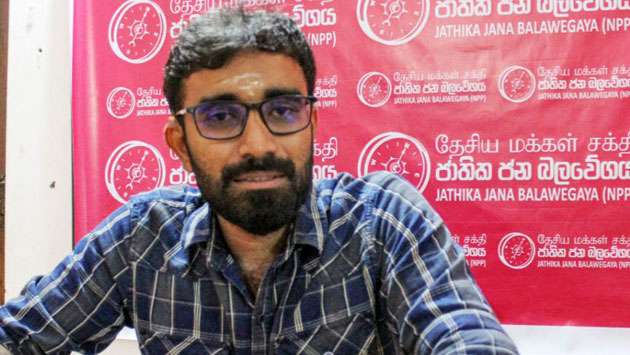COVID-19 and lessons from the pre-77 economy - EDITORIAL
24 March 2021 04:04 am Views - 449
Since the Covid-19 hit our country in March last year, our countrymen and women, irrespective of race, religion, ethnicity, poor or rich have seen our life situation drop. Salaries of ordinary citizens have taken a hit, the numbers of unemployed have grown and all the while the cost of living has kept rising.
Schools were closed and a new system of digital education became the norm. However this new normal applied only to the upper echelons of society. Media reports and other government agencies point out those facilities for digitalized education are available only to around 30% of our children.
Today, while we seem to have somewhat controlled the spread of the dreaded Covid-19 pandemic, new and more vicious variants are popping up the world over. While the country struggles to overcome the fallout of Covid-19 and its accompanying baggage, ranging from food shortages to queues to joblessness and shortfall of foreign exchange, we are forcefully put in mind of years that had gone by.
A time we had to fight similar battles of shortages in a pre-77 era brought on and worsened by an American suspension of PL 480 aid, a three-year drought and the OPEC oil embargo of 1973.
The US food aid programme originated in 1954 - a means of disposing costly domestic agricultural surpluses. In that year, Congress passed the Agricultural Trade Development and Assistance Act, known as Public Law 480. PL 480 enables food-deficit “friendly countries” to purchase US agricultural commodities with local currency, thus saving foreign exchange reserves and relieving US grain surpluses.
At one stage, according to Elmo de Silva, Deputy Director General Customs reported in our sister paper ‘Daily FT’ the country’s FOREX was so precarious that Sri Lankan Letters of Credit had to be underwritten by foreign banks.
Almost every item of food had to be obtained from an assigned co-operative store on the coupons in this book. These included rice, wheat flour, chillies, onions, etc. A family was permitted only two 12-ounce loaves of bread a day. To obtain this, one had to almost worship a local political stooge of the Government.
Social gatherings were limited to 50 persons, rice from the production areas could not be freely brought to the major urban areas as the Government had a tight control on distribution. This created a severe shortage. If anyone wanted to purchase a highly controlled item such as butter, he/she had to purchase six yards of jumping fish synthetic textiles from the co-operative shop. People refer to this time in our history as the days of the ‘closed economy’ and the ‘era of queues’. They were indeed difficult years.
What is unrecognized are the reasons behind the crisis. The OPEC oil embargo of 1973-74 caused a huge leap in petroleum prices, which impacted the country negatively and came on top of a three-year drought which devastated the agricultural sector. Foreign estate owners began disinvesting in Sri Lanka and investing in East Africa which was free of trade unionism. Unlike here East African workers were denied trade union and other rights.
Replanting tea estates was halted, resulting in nearly 40% of tea plants being unproductive and forced the nationalization of estates, according to a study by Vinod Moonesinghe published in the ‘FT’. The fruits of the tea-replanting programme by then Plantation Minister Dr. Colvin R. de Silva, were only garnered by the post-1977 regime.
Nevertheless, the results of Sri Lanka’s State-directed economic policy were impressive. For example, manufacturing, which was only 5% of gross domestic product in 1955, rose to 23% of GDP by 1977. The most impressive results came in the machinery sector: Sri Lanka became a significant manufacturer of plant and machinery, particularly for tea and rubber factories, which were exported all over the world.
One product of the era was the two-wheel tractor developed by Ray Wijewardene in 1955. The first two-wheeled tractor to be made in Sri Lanka came off the production line in 1975. Dr. Senaka Bibile’s national pharmaceutical policy aimed at ensuring that impoverished people could get pharmaceutical drugs at reasonably low prices is still held as an example by the UN.
The pre-77 era had many drawbacks, but through it, industrialization and innovation and flourished and came to the fore. With the post-77 ‘open economic policies’ however, local industrialization died as it could not cope with the foreign competition.
As Moonasinghe points out, today we have massive garment manufacturing sector, but still cannot produce even a needle that is needed for Juki machines.

